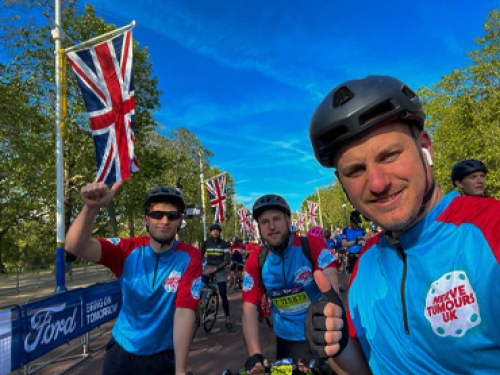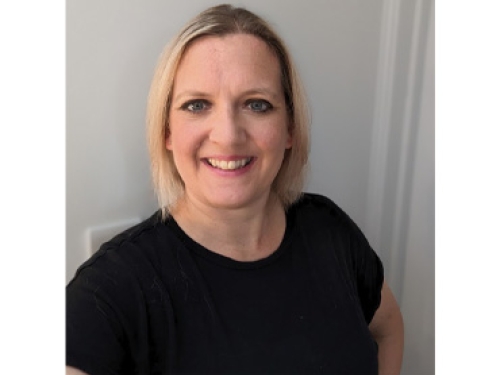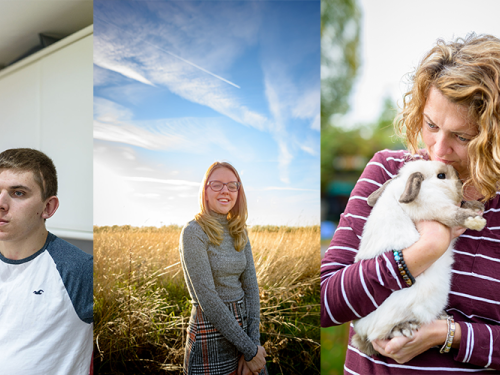Craig’s story
28 August 2025
My name is Craig, I’m 51 years old and I live and work in Leeds, UK. Married with a 17-year-old daughter, I have a mosaic form of NF2 leaving me profoundly deaf in my left ear, with severe loss in the right ear, now relying on a cochlear implant / hearing aid combo.
After a routine hearing test at work in my early twenties indicated loss in my left ear, there followed a whirlwind of specialist appointments that eventually scanned and diagnosed me with bilateral acoustic neuroma, or vestibular schwannoma as they now call them. Annual MRI scans and hearing tests showed little or no change for several years. While the hearing loss in my left ear progressively deteriorated, my right ear remained good, allowing me for the most part to continue leading a normal life. To some extent I forgot about the whole thing.
Around 2003, my neurosurgeon suggested investigating the possibility of a genetic link to the neuromas, leading to the diagnosis of the mosaic form of NF2, so I could at least hope for any symptoms to be lesser than if the condition had been inherited. Honestly, this did nothing for me other than explain what was going on, but did introduce the possibilities of other complications – like passing it on…
Life continued. Scans. Hearing tests. Results. No change. I’d say I was a little naïve towards NF2 at this time, as it wasn’t particularly having a detrimental effect on my everyday life. I was happily going along with it.
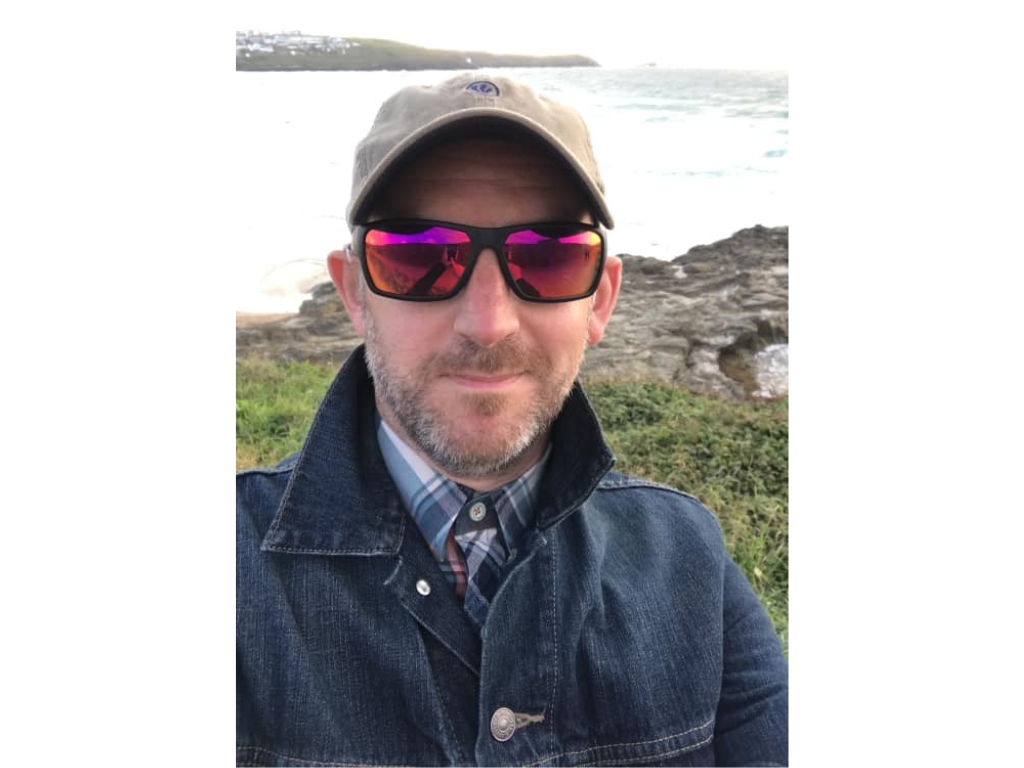
I’ve always been accompanied and supported by my wife. At the time of my first neuroma diagnosis, we had literally just moved in together, and we married in 1997. Around 2006 we decided we wanted to try for a family, and we were offered genetic testing to give us a risk factor of me passing on the condition. This came back as a quite encouraging ‘less than 5% chance’. Roll on to 2008 and we welcomed our new baby daughter. A day didn’t pass since she was conceived that I didn’t contemplate the possibility of her having NF2, and the implications that it would have on her future. In 2012 we had her tested, and to our massive relief she got the all clear. I can’t articulate how this made me feel – there were tears! Knowing she doesn’t have this condition lifted a huge weight from me. We got this news shortly before attending an NF2 Intensive Rehabilitation Programme which was my first encounter with other NF2 warriors. It was a bit of a revelation. I had no idea it could cause such serious problems, making my daughter’s recent test results even more poignant. It also made me feel almost lucky in comparison – even a bit of a fraud to be considered in the same group as those guys. I met some great people there who I now consider friends, and it was a very interesting and informative week. Sadly, one of the friends I made that week has since passed away because of the condition.
An MRI scan in 2010 showed growth of the tumour on my right-hand side – my good ear. Gamma Knife surgery was suggested as this was deemed the most appropriate action since my tumours were too small for removal by conventional surgery, and although not without risk Gamma Knife statistics offered the best possibility of preserving some level of hearing. In late 2010 I attended my initial consultation for the surgery and after being put on the waiting list for cancellations I was surprised to be called for surgery in February – having started a brand-new job in the New Year. My hearing remained good on that side for around a year afterwards. Persistent tinnitus had also set in a year or two earlier, but this was reasonably easy to ignore for the most part with that right ear still working well. Then the hearing started to deteriorate. Around early 2012 I started using hearing aids in both ears. I was starting to struggle.
2013 brought the offer of a Cochlear Implant in my left ear and I underwent surgery in the September of that year, in Manchester. My expectations of success were pretty much non-existent. Having been educated over this whole journey on the mechanics of how hearing works, I was convinced that for the same reasons that my own hearing was failing – nerve damage due to tumour growth – the implant would fail. How wrong I was! Hearing those beeps for the first time at switch on was one of the most amazing experiences of my life, and I went on to achieve almost maximum speech discrimination scores within a short time.
Not to be over-dramatic, but it has probably saved my life in many respects. It has allowed me to continue working full time as an engineer, to support my family, as well as the obvious ability to continue in face-to-face social situations.
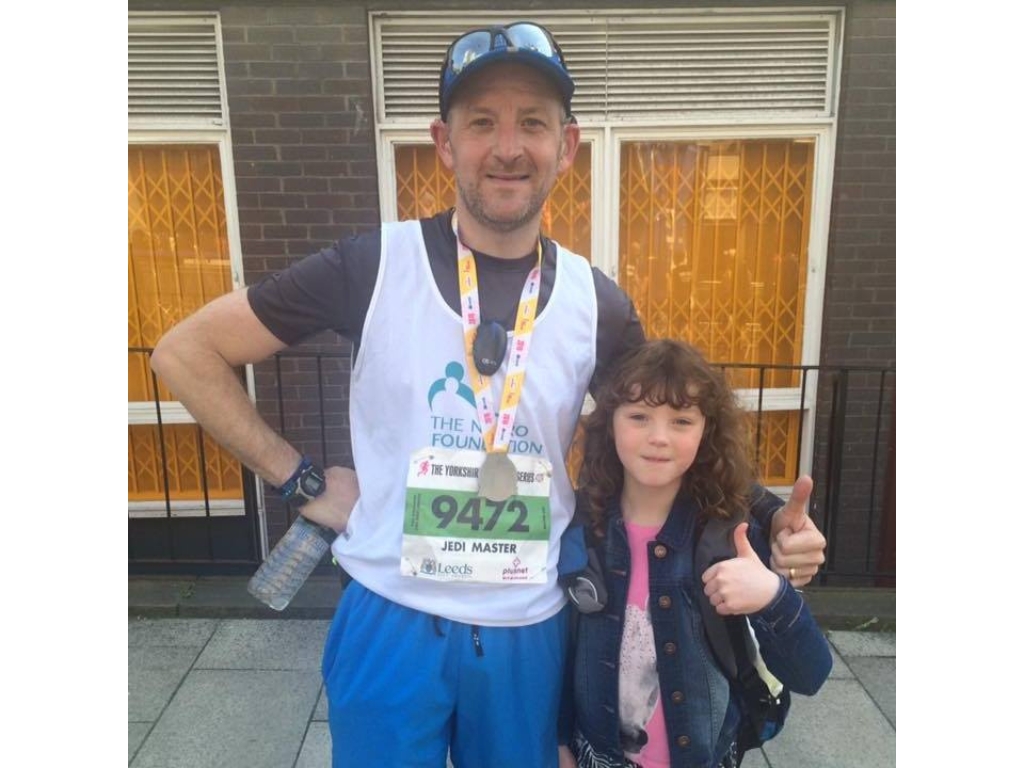
The combination of implant and hearing aid work well together. Using a loop, I can still make phone calls, attend online meetings, listen to music, watch TV etc… I installed a loop system at home for the TV – although I do still rely heavily on subtitles.
Like any of our senses, it’s hard to comprehend how much you rely on your hearing for so much. Even when it is failing you automatically try and rely on what you have. The feeling of isolation can often creep up too, the feeling that you’re missing out on things. I’ve heard it said many times - it’s much harder to adjust to losing a sense than never having had it at all. It has indeed made life more challenging.
I work as an engineer in the automotive industry and one of our main customer markets is ambulances. I provide design and technical support services to the NHS Ambulance Trusts who use our equipment, as well as the companies that build the vehicles. It can be a bit stressful, but also very satisfying.
My family also includes our crazy, but beloved Sprocker Spaniel and we enjoy holidaying in the UK and just generally doing stuff together.
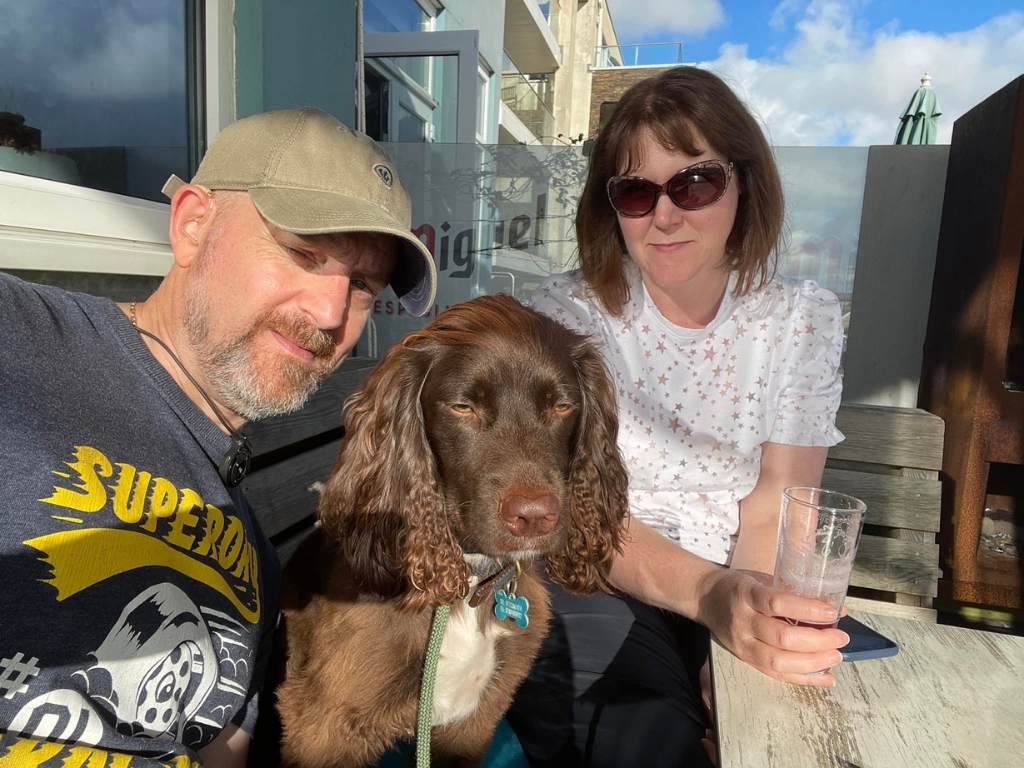
I have always enjoyed music and films and am a self-confessed Sci-fi and fantasy nerd – a devout Star Wars and Tolkien fanboy. These pastimes are more difficult to enjoy with hearing loss. Subtitles are great, but sadly offerings from cinemas are woefully inadequate. Since getting my implant I have managed to attend a few concerts here in Leeds at the Arena where they provide personal hearing loops for hearing aid users. Absolutely brilliant! The first one I attended was less than a year after my implant and was without question the best concert experience of my life so far. I’ve also been a wannabe guitarist for many years and was lucky enough to receive a music scholarship from Medel (the manufacturer of my implant) a few years ago. This started me off nicely but I still have a lot to learn, but I do enjoy it hugely.
I took up running when I was around 39-40. Aside from a desire to maintain some level of fitness, this has partly been down to my failing hearing.
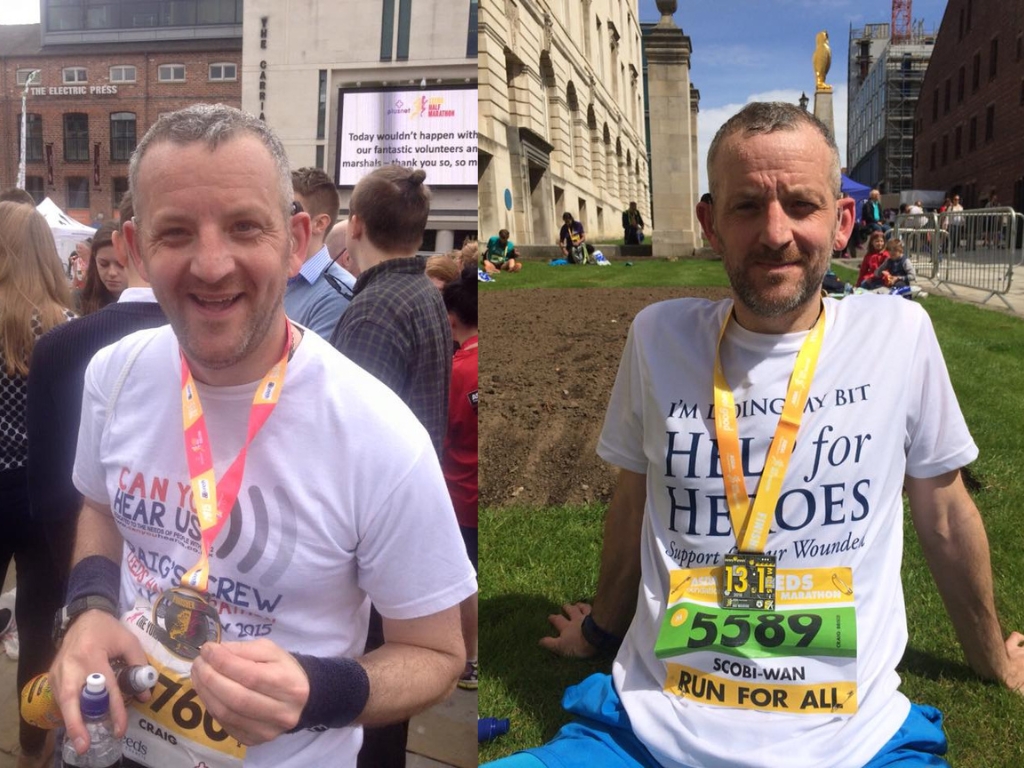
I find myself thinking that if something is going to stop working that I have no control over, then I’ll at least try and make sure everything else is in good shape! I’ve completed the Leeds Half Marathon 3 times, raising money for The Neuro Foundation in 2014, then for CanYouHearUs (an NF2 charity) in 2015 and last time out for Help For Heroes in 2017.
The Great North Run is a bucket list item for me, so to be able to do it and also raise funds and awareness for an NF2 related charity is a double bonus. My only problem is that I will want to beat my previous half marathon time – which was 8 years ago!!!!!!!

